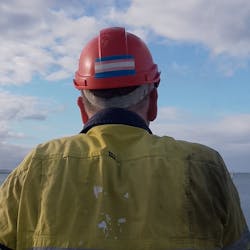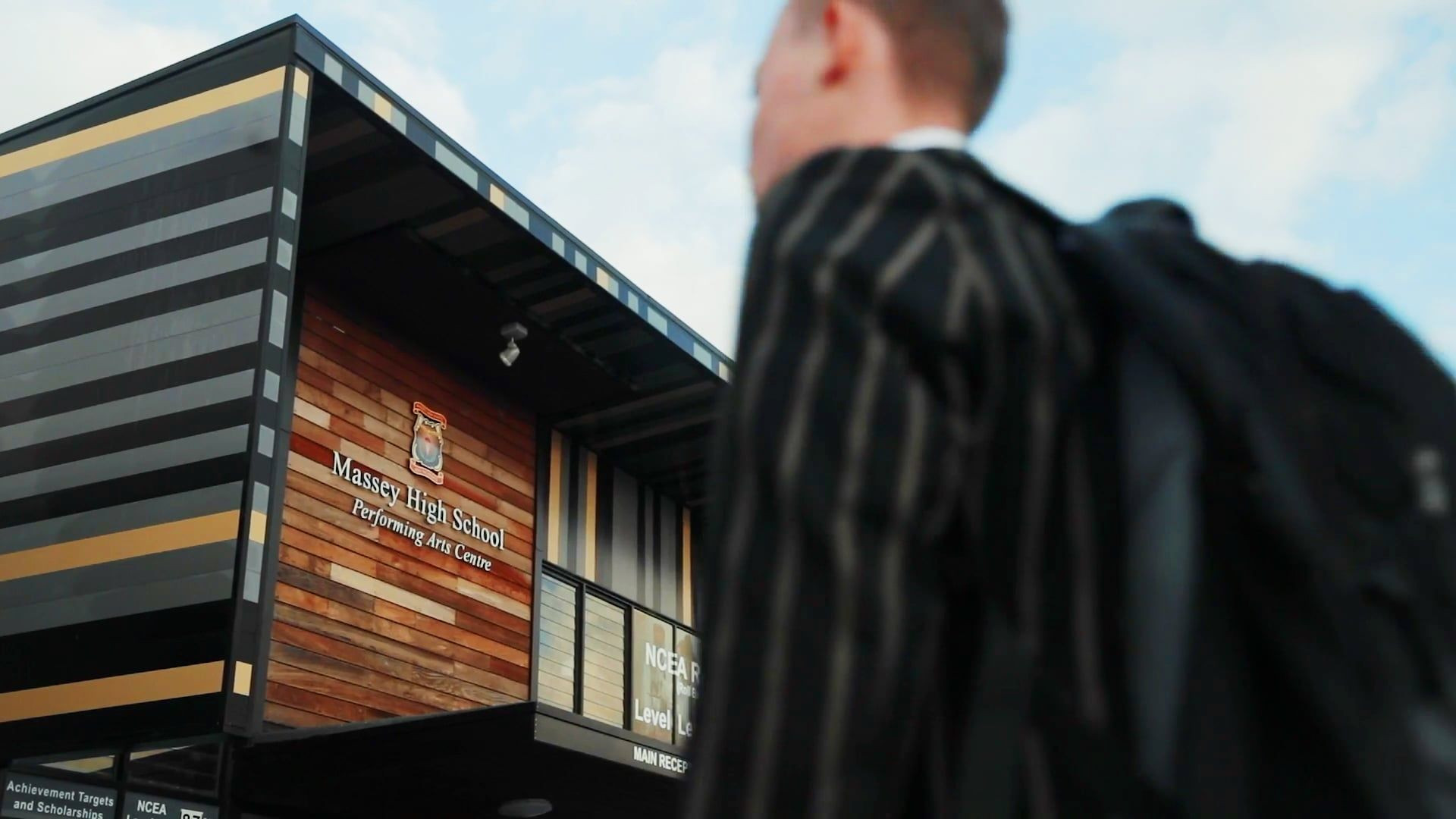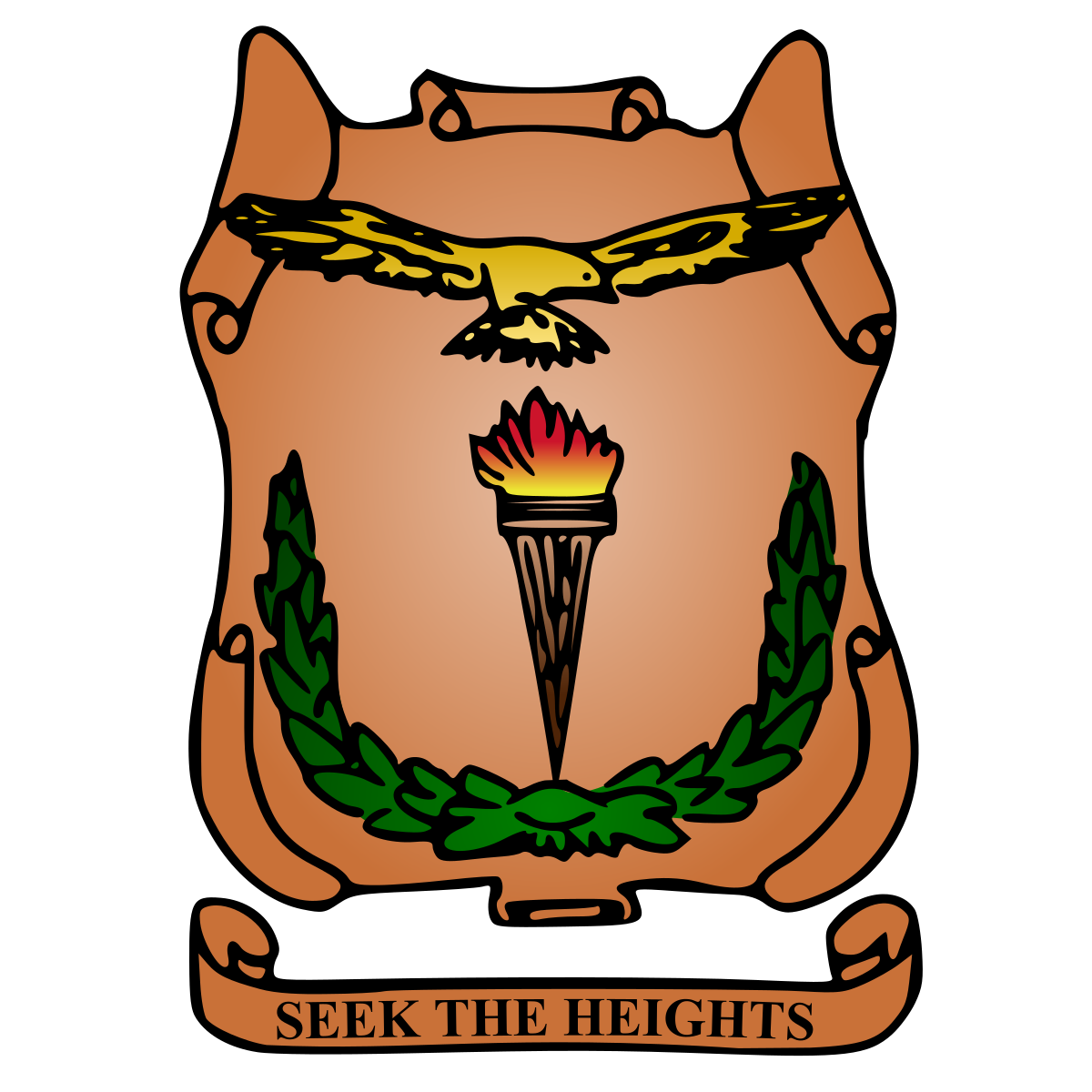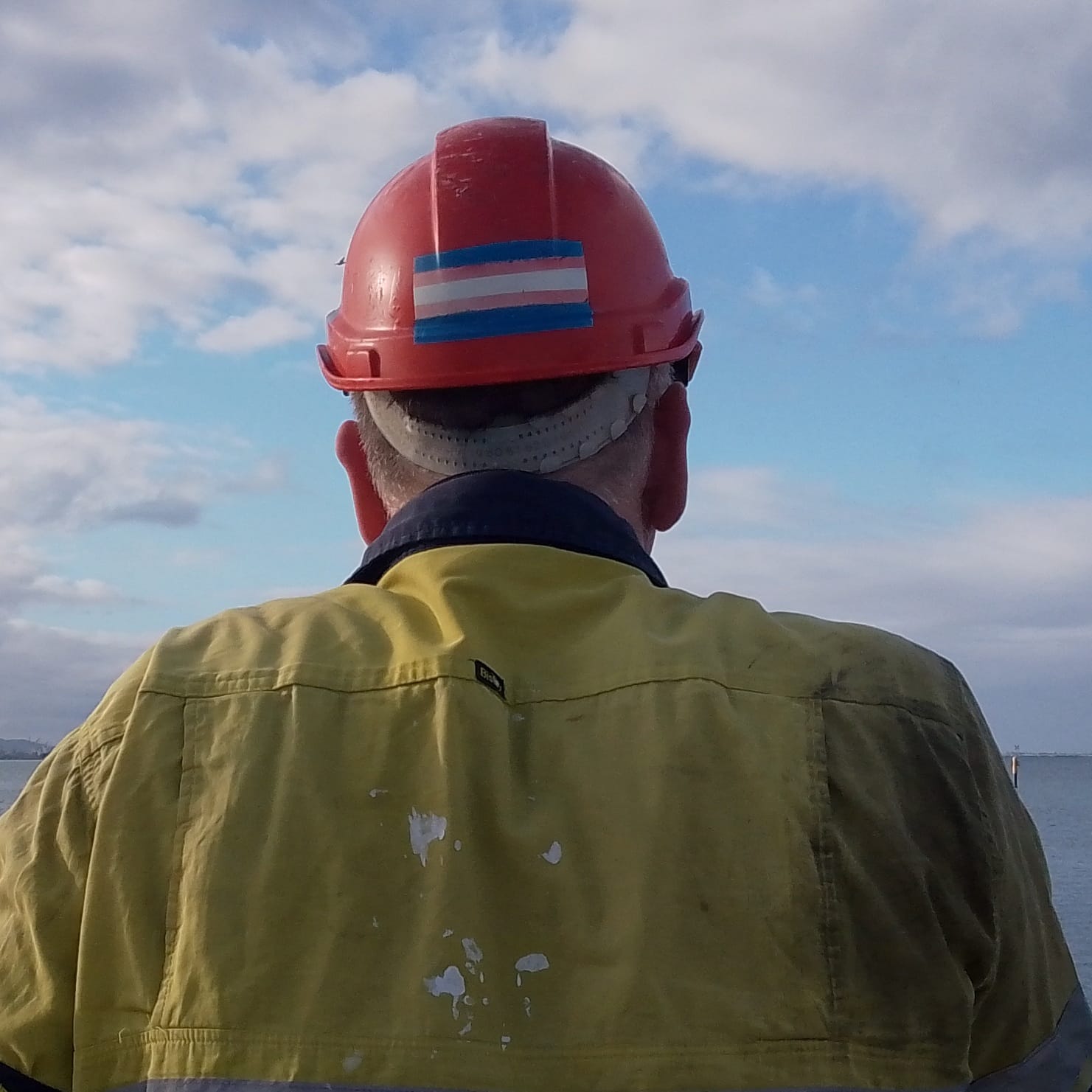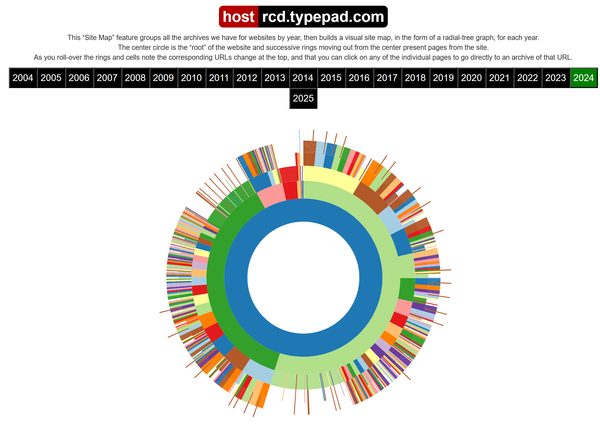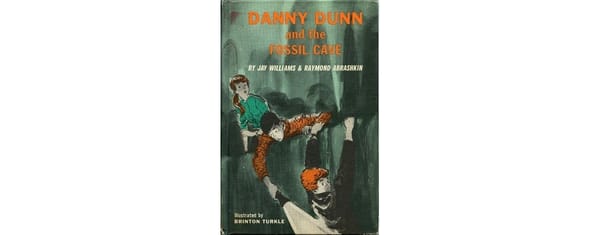"The Middle-Aged White Guys' Guide to Trans Rights" Podcast
A Dad's short—but heartfelt—attempt to be an ally to the trans community, in podcast form

I got to know Matt McArthur—albeit only on-line—via his Antarctic podcasting:
Matt's a biologist, professional diver (dived in Antarctica), Antarctic Tourist Guide, and more recently worked as a Forensic Cleaner and Maritime Crew around Melbourne. His Antarctic Pod is a hobby, albeit a professional quality epic obsession of one.
Although we've never met, we have corresponded and feel I 'know' Matt a little having heard him speak for a couple of hundred hours. That was mostly about Antarctic history, but it is occasionally sprinkled with more personal matters, regarding professional and personal ethics, and how that impacts life, family, & career.
Matt's just done a new podcast series: inspired by the time he's had supporting his transgender children, sent it to his personal mailing list, and asked us to share it.
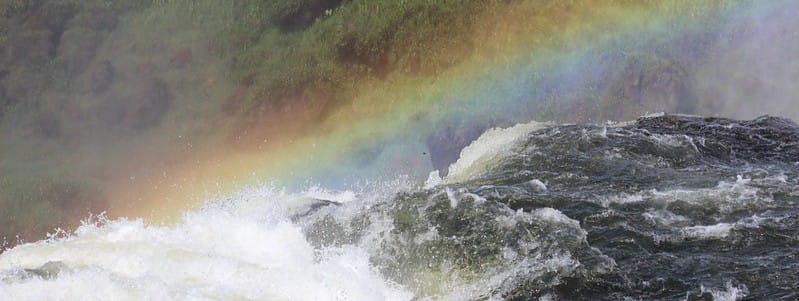
My 'gender experience'
I've never doubted my gender, I've never consciously had to decide if being, presenting, feeling, orienting, male was right. I've never feared assault, imprisonment, or worse because of my gender presentation: I've never had to 'decide'.*
I have, however, experienced gender confusion due to my name**. Just citing 'he/him' pronouns on social to help avoid that has occasionally resulted in unprovoked derogatory abuse from ignorant arseholes. Just that, and it really is nothing, has given me a tiny insight into what transgender people experience in our society.

The Pod
The Middle-Aged White Guys' Guide to Trans Rights (lets abbreviate it as MAWGG) is an amazing listen.
It is challenging and—be warned—triggering due to some of the topics and impacts society's reaction to the transgender issues Matt shares has been inflicted on him and his family.
In particular, the last episode talks about suicide—thankfully, the possibility of, and not an actual loss—and Matt's response is direct, I think unique (certainly unexpected by me), challenging, but empowering.
I'm impressed
I have no idea how hard it must be for Matt & family to live and share the impacts of their experience (for all those associated) so intimately. If you are that 'Middle-Aged White Guy'—or need some help dealing with MAGA MAWG types—there is some valuable info in this series.

From Matt
The sense of urgency in this project is mapped in episode one of the six-part podcast series, "The Middle-Aged White Guys' Guide to Trans Rights (libsyn.com), also on Spotify.
Give it a listen and pass its details along to anyone you think might help make Australia [the world] a better place for our most marginalised demographic with a little aural kick up the bum and some handy counter-bigotry arguments and talking points.
"We can do better, and it actually takes less energy to not be an asshole about it than it takes to be a bigot. Indifference for the improvement. Love and acceptance for the win." | Matt
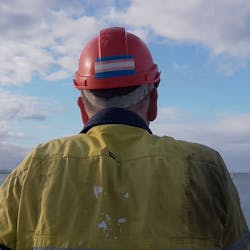
Episodes:
001 | Context | 0:19:51
How I came to my understanding of the problems trans people face and why I started this series.
002 | Information | 1:09:00
A scientist's perspective on how information is misinterpreted and spread by bigoted attempts to vilify trans people, with some additional insights on freedom of speech and unrecognised privilege.
003 | What is a woman? | 0:25:57
While trans men and the non-binary aren't invisible to Australian bigots it's trans women on the receiving end of most of their venom. A lot of the bigotry ranged against them is couched among flawed definitions of what a woman is, and by extension what a woman is not.
This episode I do my best to sort out the bigot chaff from the historical, and therefore also bigoted, definition of womanhood, thereby leaving bigots little room to move in their bullshit attempts at reasoning and rhetoric.
And if you ever find yourself painted into a corner as hard as the assholes I mention in this episode, look to your own hand for the brush in the first pass. Could be your wrong about something.
004 | Sport and the myth of the level playing field | 0:19:41
People are falling out of their trees about trans athletes taking part in sports. Why they chose to climb those trees in the first place is beyond me. This episode I map why those trees aren't a sensible means to gain altitude or perspective.
005 | But what about my awesome jokes? | 0:19:21
People whining about politically correct critical race theory diversity inclusivity and equity wokeness damaging their ability to make their friends laugh is a common and extremely stupid way by which some dullards try to write trans people out of cultural consideration.
This episode makes it clear that people can tell whatever jokes they want but that me not laughing at their efforts, or even me telling them to go fuck themselves because I don't like them because of their shitty jokes, doesn't in any way affect their freedom of speech or ability to use slurs and shitty premises in their attempts to make themselves feel funny.
I've seen people kicking downhill at our trans community members from their position of privilege on stage and screen and quantifiably enjoyed more laughs cleaning up after unattended deaths (in part because my colleagues in the trauma cleaning industry are funny fuckers and you really need to laugh in those situations, and in part because lashing out at the powerless is a shit move and seeing people do it makes me dislike those people).
006 | Deaths of despair and how to reduce them | 0:14:41
Every trans person who ends their life because they can't find acceptance among family, community, or society, is one death too many.
Some local graffiti sums it up
Went for a walk this evening, some graffiti found on the blank part—so no harm—of a bus stop schedule struck me. The drawings indicate different subject, but the words are appropriate:
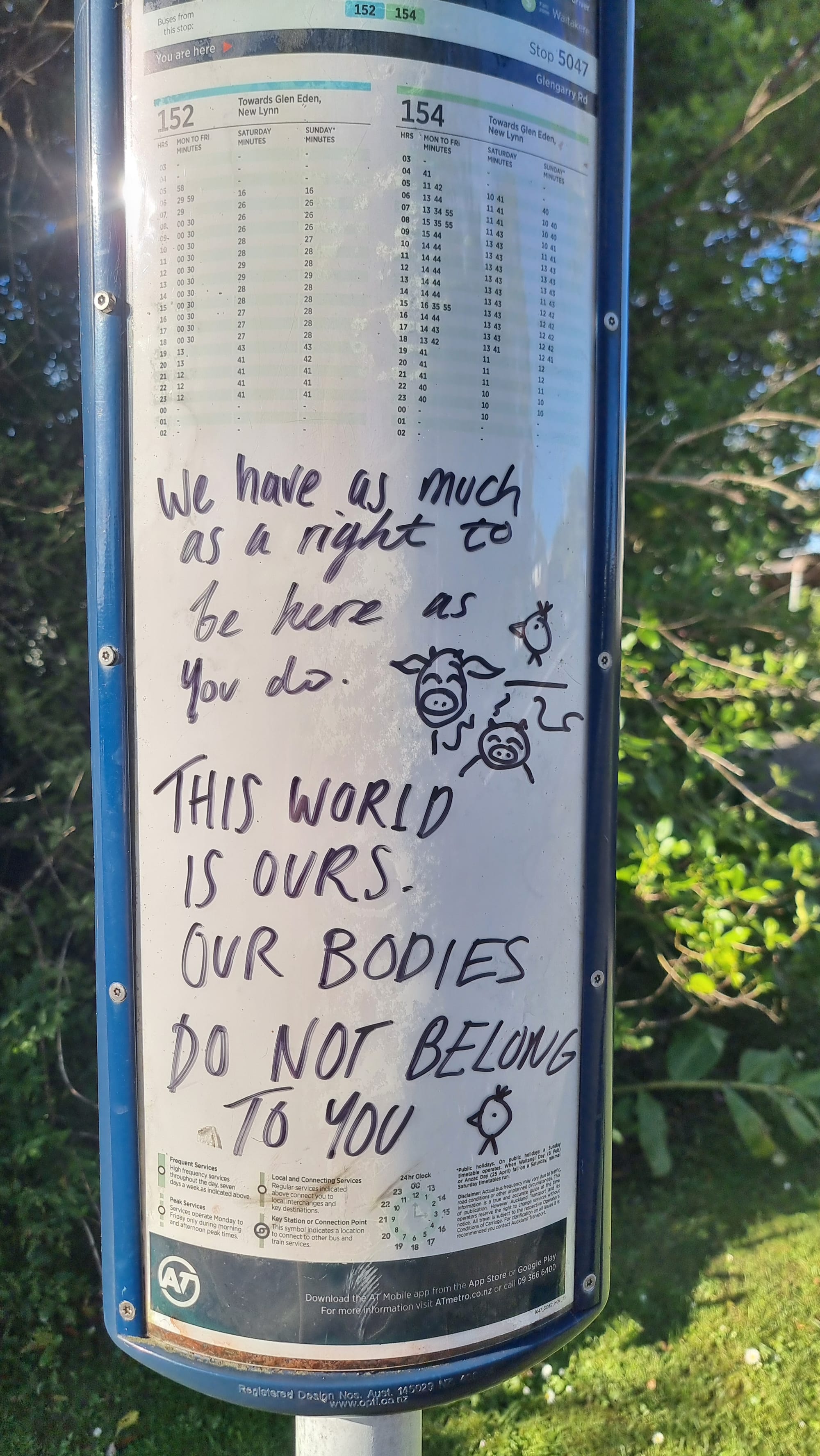
P.S.
* My question for gender bigots?
If someone expresses a strong opinion on imposing gender upon, or denying the sexual orientation of, others one way to challenge their thinking is to ask them:
Invariably the answer will be 'I've always been...", if so ask them:
- What would you do if society, the law, said you couldn't live that?
I can't remember if I read this somewhere or just dreamed it up. What I think makes it disarming is how it turns the issue from 'they should' back on them and their life in a non-confrontational way. It's much easier to impose on 'them', than consider the 'them' to be you. It is often not something expected, nor often have a 'canned' answer for.
** Gender confusion and me
Robin, Robyn, or Jack?
I've had he/him pronouns on most social media as 'Robin' can be masculine or feminine. In NZ, the feminine spelling is usually 'Robyn' but I have noticed —in the USA particularly— it can be Robin too.
Because my sister's name is often abbreviated to 'Jac' it wasn't uncommon for our names to be confused and people thinking she's Robyn and I was 'Jack'.
Never mind having coloured hair...
High School 5th Form Prizegiving
Imagine the scene: The School Hall, packed with students and parents for the Fifth Form (~15-year-old) end of year prize giving. Massey High School was quite a big school (for NZ), currently ~2,000 pupils, and I guess maybe 1,200-1,500 back then.
The Principal opened with a speech about how, although a large school, there was personal attention for all the students. He then started the prize giving and I happened to be first awarded.
I was in Form 5a because, not due to streaming, our Form Teacher's surname started with A. I guess the prizes were alphabetical by surname too (?) because the one I got was for technical drawing and, being the first of the day, was announced like this:
"This award means Robin is the top of her whole form for technical drawing, not just the top of her class"
Everyone that knew me, not everyone but a lot, reacted with cheers, whistles, and applause as I stood and walked up to the stage. I don't know who was more embarrassed, the Principal or me, I suspect it was not me...

Reference

